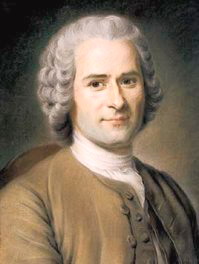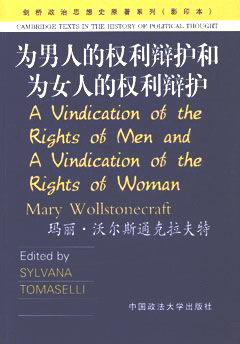赫希菲尔德性学资料库
Archiv für Sexualwissenschaft
原著:[德]欧文•黑伯乐(Erwin Haeberle);译者:[中国]彭晓辉;校对者:[美]阮芳赋
Original: Erwin Haeberle [Germany]; Translator: Xiaohui Peng [China]; Reviser: Fang-fu Ruan [USA]
I.先行者(古代-1892)
| 1735年,瑞典植物学家卡尔·范·林奈(Karl von Linné)引入了“性分类方法(methodus sexualis)”,即按照植物的生殖结构特征划分植物的分类体系。这个植物分类体系(现已废弃)给当时的大部分学者留下了非常深刻的印象,但是因为这个分类体系让一种雄蕊在一朵花上或在同一种花上与数个雌蕊授粉,也遭到了当时的道德卫道士的抨击。他们认为此乃对上帝的诽谤,上帝不可能创造如此堕落的事物。当时,他们煽动教师不要在学校里教授林奈的植物分类体系。 |
林奈(1707-1778) | |
| 洛桑(Lausanne,瑞士西部城市,在日内瓦湖北岸——译者注)医生塞缪尔·逖索特通过其著作《论手淫》(Onanism,1760),成了最富影响力的所谓手淫有害论的推行者。在往后的150年里,“手淫精神错乱”的恐惧一直是疾病预防和青少年性教育的主题。 | ||
| 日内瓦作家与作曲家杰恩-雅克·卢梭(Jean-Jacques Rousseau)在其著作《爱弥儿》(Émile,1762)要求在儿童期和青春期保持“清白”。 |

| |
| 德国教育家,像J.埃斯特(J. Oest)和J. H.坎普(J. H. Campe)等,献身于反对手淫的教育事业。 |
| 马奎斯·德·萨德(Marquis de Sade,法国作家,其著作多描写“性变态”,法国普罗旺斯贵族出身,一生沉沦放荡,1772年以性虐待,拉皮条,同性恋,散发春药等罪被判死刑,后以精神病为由被送入精神病院,之后潜心于文学创作。后死于疯人院。Sadism-性虐待狂一词即出自于Sade。——译者注)因道德指控而被囚禁在巴斯德监狱,在哪里他秘密地写了一本怪诞、无耻和亵渎神明的手淫幻想书(《索多玛120天》)。这部书也嘲笑理智会使人类富有理性、高尚和仁慈的“文明”信仰。 |
马奎斯·德·萨德(1740-1814) | |
| 英国作家玛丽·沃尔斯通克拉夫特(Mary Wollstonecraft)于1792年发表了《为女人权利辩护》(A Vindication of the Rights of Woman)一书,她在书中正式地要求女性在教育、私生活和公共生活、包括政治权利方面的平等。她撕下了她那个时代妇女“天生”性别角色的假面具,认为妇女的性别角色是父权制意识形态的产物。玛丽·沃尔斯通克拉夫特(1759-1797) |

| |
| 这种女权主义的目标在早期也得到了马奎斯·德·孔多塞(Marquis de Condorcet )的著作支持。可是,这种女权主义目标不久就在法国大革命的恐怖时期(1793-1794)和随后的政治恢复期被抛弃了。 | ||
| 杰出医生约翰·亨特(1728-1793, 英国解剖学家及外科医生。他认为根据传染的部位可决定性病的类型,例如淋病是发生在粘膜上,而梅毒硬下疳则发生在皮肤上。依照这种假想,他将一个淋病患者的脓液种植到自己身上;由于该患者还患有梅毒,因而约翰·亨特同时染上了淋病和梅毒,最后死于梅毒性主动脉炎。——译者注)在其著作《性病论》(Treatise of the Venereal Disease)“阳痿”一章中清楚地阐述了性治疗的基本原理。 | ||
| 到了18世纪末,英国教区牧师托马斯·马尔萨斯(Thomas Malthus)发表了《人口原理》(Essay
on the Principle of Population,1798),他在书中抨击了他那个时代的“文明”雅士墨客的乐观主义思想,并对人口过剩发出了警告,认为过剩的人口会阻碍人类永久的幸福。
托马斯·马尔萨斯(1766-1834) |
|
本中文译版于2006年4月4日翻译完毕 上一页 下一页 返回目录
返回页顶
返回首页
I.Predecessors(Antiquity-1892)
4.The 18th Century
| In 1735 the Swedish botanist Karl von Linné introduces his "methodus sexualis" i.e. a classification system in which plants a listed according to the character and number of their reproductive structures. This system (now obsolete) greatly impresses most contemporary scholars, but is also attacked as obscene by moralists, because it allows for the cohabitation of a male stamen with several female pistils in one and the same flower. This is considered a defamation of God who cannot possibly have created such depravity. Teachers are urged not to teach Linné's system in school. | ||
| The Lausanne physician Samuel Tissot, through his book "Onanism" (1760), becomes the most influential propagandist of the alleged dangers of masturbation. For the next 150 years, the fear of "masturbatory insanity" remains a dominant theme of disease prevention and adolescent sexual education. | ||
| The Genevan writer and composer Jean-Jacques Rousseau, in his influential book "Émile" (1762), demands the preservation of sexual 'innocence' in children and adolescents. | ||
| German educators like J. Oest and J. H. Campe devote themselves to the fight against masturbation. |
| The Marquis de Sade, imprisoned in the Bastille on a morals charge, secretly writes bizarre, outrageous and blasphemous masturbation phantasies ("The 120 Days of Sodom"), which also mock the "enlightened" belief that rational insight will make human beings reasonable, noble, and kind. | ||
| The English writer Mary Wollstonecraft, in 1792, publishes her "Vindication of the Rights of Woman", in which she demands female equality in education, private and public life, including politics. She unmasks the alleged 'natural' role of women in her time as the product of a patriarchal ideology. | ||
| The feminist goals had also earlier been supported by the Marquis de Condorcet in a publication of his own. However, they are soon abandoned by the reign of terror in the French Revolution and by the following political restoration. | ||
| The eminent physician John Hunter spells out the basic principles of sex therapy in the chapter 'Of Impotence' of his book "Treatise of the Venereal Disease". | ||
| Towards the end of the century, the English parson Thomas Malthus publishes his "Essay on the Principle of Population" (1798), in which he criticizes the optimism of the 'enlightened' writers of his time and warns against overpopulation, which will prevent mankind's lasting happiness. |
|